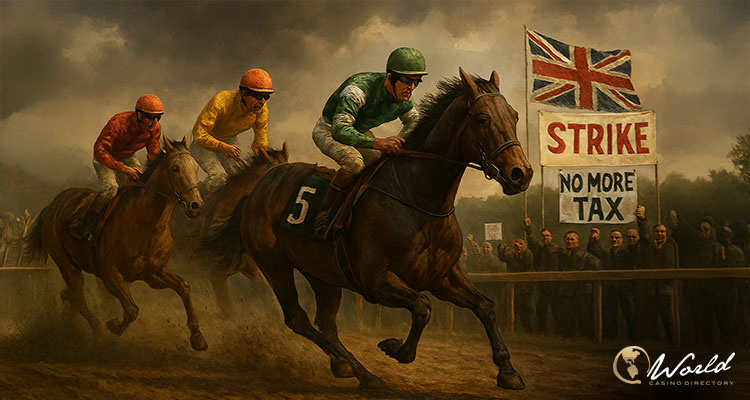For the first time in its history, Britain’s racing industry will voluntarily shut down all fixtures for a day as part of an escalating protest against government tax reforms. On 10 September, four scheduled meetings—at Carlisle, Uttoxeter, Lingfield Park, and Kempton Park—will be cancelled in a collective strike against the Treasury’s proposal to raise betting duty.
The move comes in response to plans to align the 15% levy on bookmakers’ sports betting profits with the 21% currently charged on online casinos and slots. Racing leaders argue the measure could destabilize the sport, which already relies heavily on a separate 10% horseracing levy that contributed £108 million to the sector in 2024-25.
A Historic Blackout for the Sport
Racing in Britain usually continues 363 days a year, only pausing for Christmas Eve and Christmas Day. While extreme weather, equine diseases, or national crises such as the Covid-19 pandemic have interrupted the schedule in the past, this will be the first occasion where the industry itself has chosen to suspend activity.
The blackout is expected to cost the sector around £700,000 in lost income, including an estimated £500,000 in broadcasting rights and £200,000 in levy returns. However, stakeholders see the action as a necessary demonstration of unity and urgency. Owners, jockeys, and trainers will join representatives of the British Horseracing Authority (BHA) and Members of Parliament in Westminster on the day of the strike to highlight the risks posed by the tax plan.
Jim Mullen, CEO of the Jockey Club, which operates Kempton and Carlisle, said: “Our sport has come together today, and by cancelling racing fixtures, we hope the government will take a moment to reflect on the harm this tax will cause to a sport in which our country leads in so many ways.”
Economic modeling commissioned by the BHA suggests that moving to a flat 21% rate would strip £330 million from racing revenues within the first five years. The research also warned of 2,752 job losses in the first year.
As The Times reports, Brant Dunshea, the BHA’s chief executive, emphasized the precarious state of the sport: “British racing is already in a precarious financial position and research has shown that a tax rise on racing could be catastrophic for the sport and the thousands of jobs that rely on it in towns and communities across the country. We haven’t taken this decision lightly but in doing so we are urging the government to rethink this tax proposal to protect the future of our sport which is a cherished part of Britain’s heritage and culture.”
Arena Racing Company, which owns Lingfield and Uttoxeter, has echoed the concern. CEO Martin Cruddace described the plan as “existential,” highlighting that unlike online casino products, racing “makes an enormous contribution to society and employment, has vastly different rates of gambling-related harm and is not available every ten seconds, 24 hours a day.”
The Jockey Club also underlined the wider cultural value of the sport, with Mullen warning of “irreparable damage that threatens a sport the nation is, and should be, proud of.”
Political Context and Alternative Proposals
The consultation on tax harmonisation began under Rishi Sunak’s Conservative government and continued under Labour. Chancellor Rachel Reeves is expected to announce final measures in the autumn budget.
The Treasury defended the proposal in April, arguing that “a single duty would provide tax certainty and increase simplification for remote gambling.” A spokesperson stated that the move was designed to cut bureaucracy rather than adjust rates, adding: “We welcome views from all stakeholders including businesses, trade bodies, the third sector and individuals.”
Meanwhile, alternatives have been floated. The Social Market Foundation has suggested raising gaming duty to 50% and betting duty to 25%, paired with reforms to the Levy system to protect racing. Former prime minister Gordon Brown has gone further, backing a plan to lift duty on online gaming to 50%, saying it could raise £3.2 billion annually for welfare support.
The timing of the September strike is also symbolic, taking place just one day before the prestigious St Leger Festival at Doncaster—an event attended last year by Prime Minister Sir Keir Starmer and his wife Victoria.
Despite the financial impact of the cancellations, racing leaders see the action as critical to preserving the sport’s future. “Our message to government is clear,” said Dunshea. “Axe the racing tax and back British racing.”



